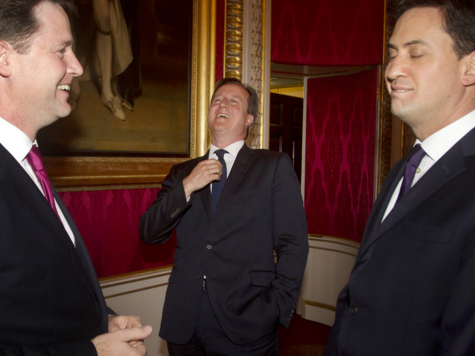After that meeting in Sweden, it looks like David Cameron can’t even win a battle in a phoney war.
It turns out the prime minister didn’t even raise the issue of Jean-Claude Juncker at a meeting of the leaders of four of the EU’s most powerful countries.
All that came out of the two-day meeting was a warning to Cameron by Merkel not to threaten her with Britain leaving the EU, and a repeat by Merkel of her endorsement of Juncker.
Before the prime minister flew into Stockholm yesterday, he had built up the issue of whether the euro-zealot Jean Claude Juncker makes it to the top of the European Commission as a crucial issue of Britain’s future in the EU.
Yet the fact is that even if Juncker fails to get the post, whoever does get it will be just as much of a zealot – the only difference being that he might be a more skilful and slippery zealot.
This is because the European Parliament has the power to reject any candidate put forward by the European Council, the EU institution made up of the heads of state and government of the member states. Unlike Cameron, an overwhelming majority in the parliament want a commission president who will build an “ever closer union.”
The expectation was that Cameron would use the meeting with the Swedish Prime Minister Fredrik Reinfeldt, German Chancellor Angela Merkel and Dutch Prime Minister Mark Rutte to build an alliance against Juncker, who is being pushed by the leadership in the European Parliament as their chosen candidate.
Cameron was reported to have told Merkel last month that if Juncker were chosen to head the commission he might be forced to bring forward the In/Out referendum and Britain would vote to leave the EU.
In what looked like muscle-flexing on his way into the meeting at Reinfeldt’s official country residence, Cameron told the waiting press: “As the democratically-elected leaders of Europe, we should be the ones to choose who should run these institutions rather than accept some new process which was never agreed. I think that is important.”
But at a press conference following the meeting, Cameron admitted that the four had not discussed any candidates at all, which is to say, Juncker’s name had not even been mentioned.
What did come out of the meeting was a warning by Merkel to Cameron not to threaten her with Britain leaving the EU if he does not get his way on Juncker:
“You cannot just consign to the backburner the question of the European spirit. Threats are not part and parcel of that spirit. That is not part of the way in which we usually proceed.”
More, Merkel repeated her endorsement of Juncker, although in the ambiguous way which is familiar to those who have watched her operate in Brussels:
“I have said it in Germany and so I will again here: Jean-Claude Juncker is my candidate for the position of Commission president and I want to have him as Commission president.”
So where does this leave Cameron? Up a blind alley. He has built up the issue of Juncker so much that if Juncker is rejected by the European Council – which is likely, but not because of British demands — Cameron will be left with no political ammunition to stop anyone else emerging as the council’s candidate.
Indeed, in the Jesuitical way of the Brussels establishment, it may well be that Juncker is being supported for now only as someone who can take the fall as British euroscepticism’s “victim” before a candidate more genuinely to the taste of the EU elite emerges.
More, Cameron’s rejection of the European Parliament’s attempts to control the choice of candidate must lead to resentment among the MEPs who want more power to be given to the parliament and to the other EU institutions.
Despite the gains in the elections by eurosceptic parties, the EU-enthusiast parties retain an overwhelming majority in the parliament. This majority is likely to take revenge on anyone supported by Cameron – not only his candidate for president of the European Commission, but also the likely candidate as Britain’s next European Commissioner, Andrew Lansley.
The parliament can reject Lansley, not as an individual, but the parliament can say that if Cameron does not withdraw his nomination, the parliament will reject the entire new commission. This will bring vast pressure on Cameron to come up with another candidate.
And whoever the British commissioner finally is, the new president of the commission can make sure his is given a portfolio of secondary significance.

COMMENTS
Please let us know if you're having issues with commenting.